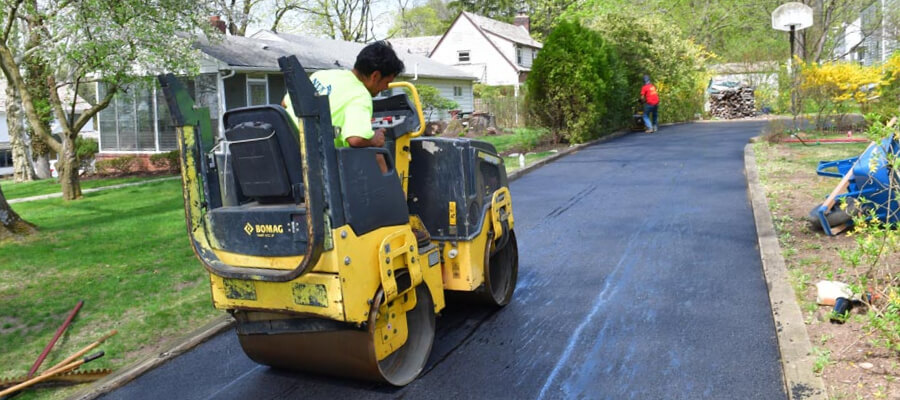When it comes to enhancing the appearance, durability, and maintenance of your home, you’ll want to opt for long-lasting, attractive, and cost-effective solutions. Pavers are an excellent choice for upgrading your driveway, patio, walkway, or even backyard. With numerous paver options available in the market, finding the perfect one for your home can be overwhelming.
A client recently approached us seeking advice on the best paver to complement his home’s aesthetics while adding a vibrant and attractive appeal. In response, we presented an overview of the various paver types, showcasing samples of each.
But first, let’s understand what pavers are. Pavers are slabs and blocks made from a wide range of materials, serving as an alternative to concrete in construction. They can be used for driveways, patios, pool decks, planters, fire pits, or walkways. Pavers can be categorized based on the material used or their features, color, and shape.
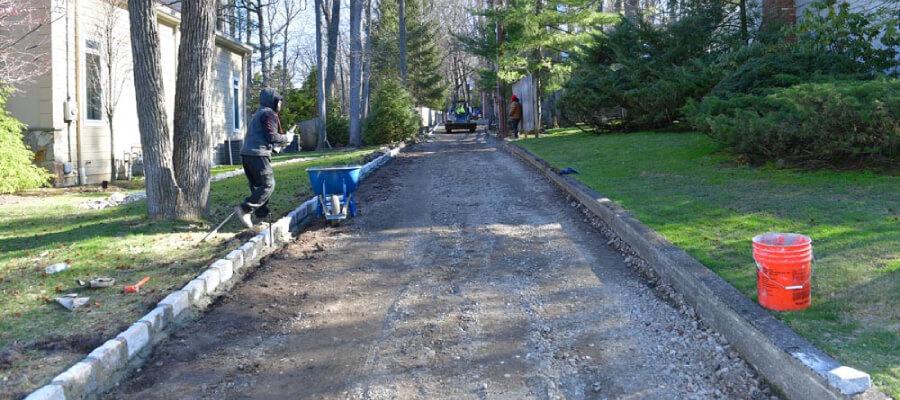
By Type of Material:
- Brick Pavers
- Concrete Pavers
- Bluestone Pavers
- Flagstone Pavers
By Paver Features, Color, and Shape:
Different pavers come in various materials, shapes, features, and colors.
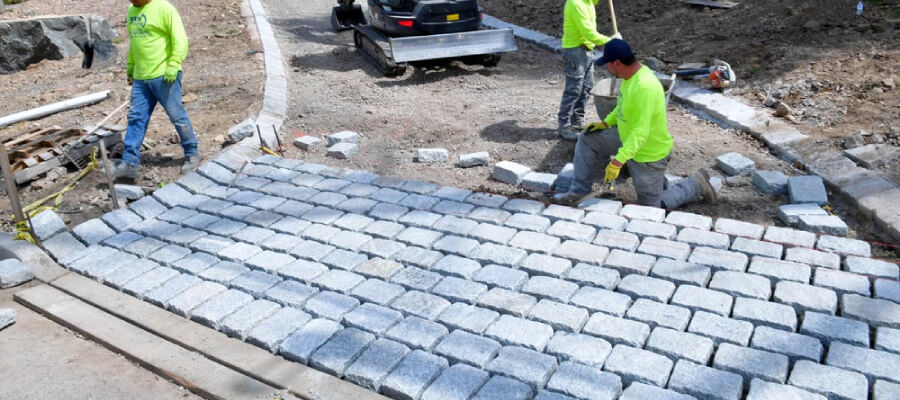
By Type of Material
Brick Pavers
Made from clay and baked in a kiln, brick pavers come in a wide range of shapes and colors. They are versatile, allowing for numerous arrangement options. As their main component is natural materials, they are an eco-friendly choice. However, brick pavers are fragile and require a solid base and regular maintenance, making them somewhat expensive.
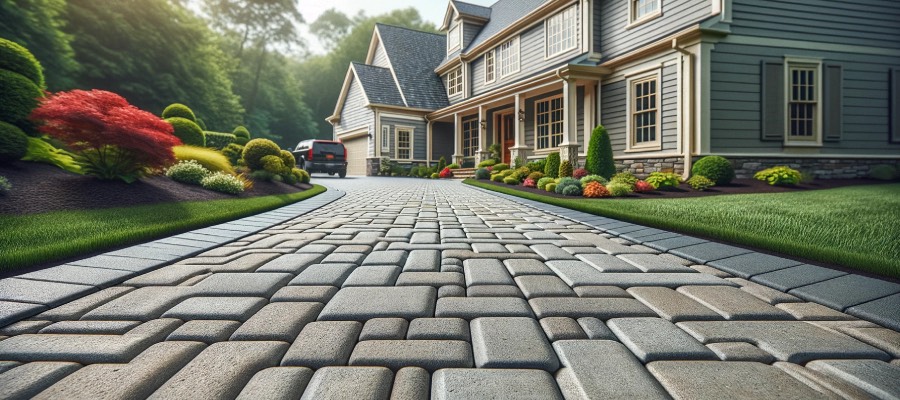
Concrete Pavers
Easy to install and available in various colors, concrete pavers are more durable than poured concrete. However, they don’t hold color pigments for long, require high maintenance, and are prone to cracking in extreme temperatures. Due to the low cost of their materials, concrete pavers have a shorter lifespan.
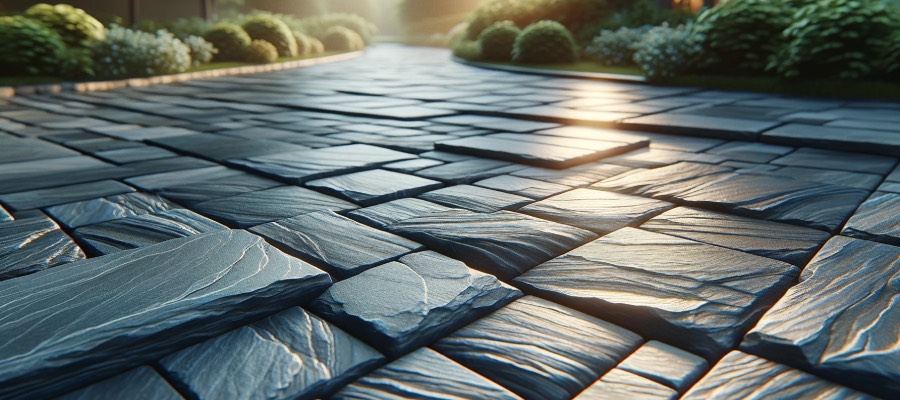
Bluestone Pavers
Bluestone pavers offer an elegant and sustainable option for driveways and walkways. They are durable, can be shaped as needed, and feature an attractive color. They can also be used alongside other paving materials. Unfortunately, their vibrant blue color fades over time, and counterfeit products are common in the market. Additionally, they can be expensive due to their limited availability.
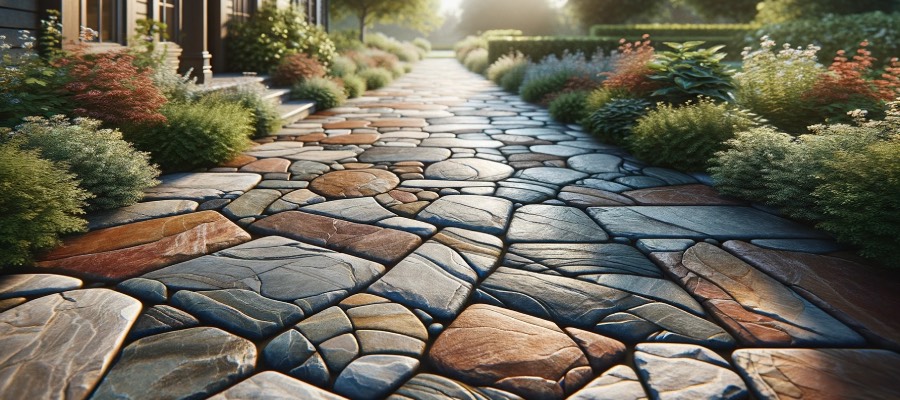
Flagstone Pavers
Flagstone is a type of sedimentary rock commonly used for patios. These pavers have a unique shape and are arranged like puzzle pieces. However, they are not suitable for high-traffic areas such as driveways. Flagstone pavers offer a non-slip texture, durability, and versatility in landscaping, and they come in various colors and shapes. Despite their natural occurrence, they can be costly due to the challenges in collecting and transporting them.
Other materials used for making pavers include marble, travertine, porcelain, cobblestone, rubber, and plastic.
By Paver Features
Once you’ve chosen the material for your paver, you must decide how they will interlock. This decision largely depends on the shape of the pavers you select. You can choose pavers that interlock naturally or those that require a slab for installation.
Regarding the color of the pavers, you can choose from red, brown, light gray, dark gray, purple, blue, or multicolored options.
In conclusion, finding the ideal paver for your home entails considering various factors, such as materials, features, and aesthetics. By understanding the different types of pavers and their characteristics, you can make an informed decision and create a visually appealing and durable outdoor space that enhances your home’s overall value and curb appeal.
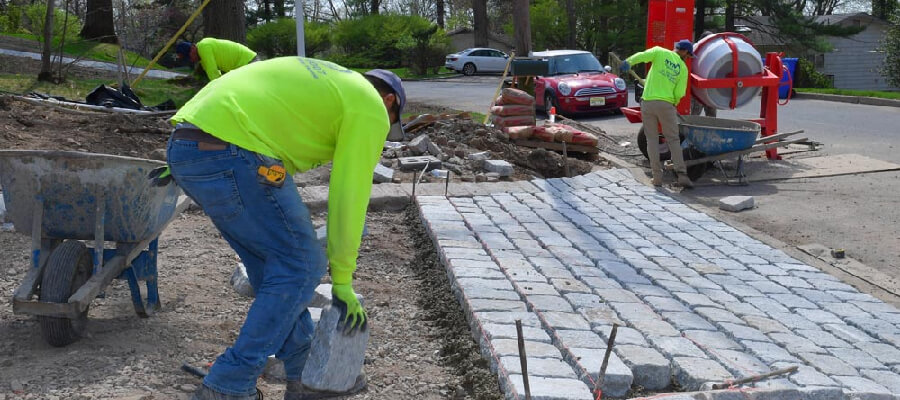
To make the right choice, consider the following factors:
- Budget: Determine the amount you’re willing to spend on your project. Some paver materials, such as bluestone and flagstone, can be more expensive than others like concrete or brick pavers.
- Purpose: Consider the intended use of the paver installation. Is it for a high-traffic area like a driveway or a more decorative application like a patio or walkway? This will help you select the most suitable paver material and design.
- Maintenance: Evaluate how much effort you’re willing to put into maintaining the pavers. Some materials require more maintenance than others, and this can affect the long-term costs of your project.
- Aesthetics: Choose pavers that complement your home’s existing design and color scheme. Visualize how the pavers will look once installed, and select a material and color that enhances your home’s appearance.
- Installation Process: Some pavers, like interlocking ones, are easier to install than others that require a slab or specific installation method. Factor in the complexity of the installation process when making your decision.
- Durability: Opt for pavers that can withstand the local climate and wear and tear from daily use. For instance, if you live in an area with extreme temperature fluctuations, consider choosing pavers that can handle such conditions without cracking or fading.
- Eco-friendliness: If you’re environmentally conscious, choose pavers made from natural or recycled materials. These options help reduce your carbon footprint while still providing a visually appealing and functional outdoor space.
In summary, selecting the perfect paver for your home involves considering various factors, such as materials, features, and aesthetics. By understanding the different types of pavers and their characteristics, you can make an informed decision and create a visually appealing and durable outdoor space that complements your home. Keep in mind your budget, intended use, maintenance requirements, and personal preferences to ensure that you choose the most suitable paver material and design for your project.
